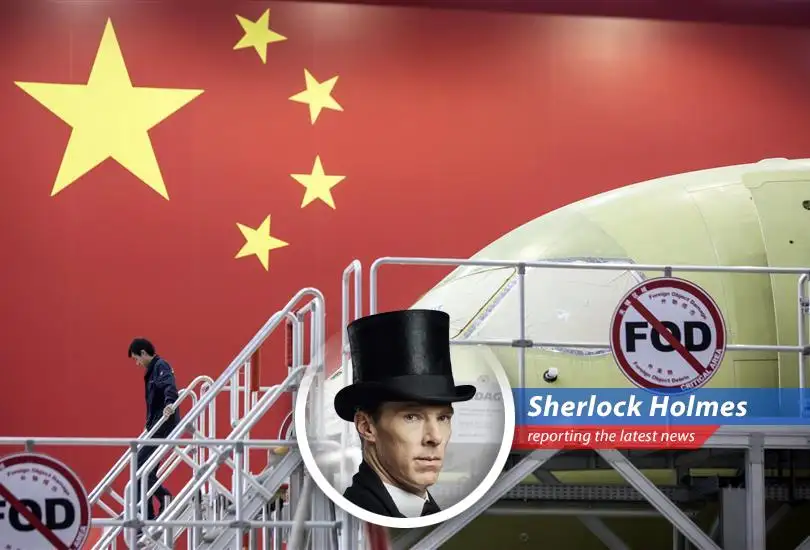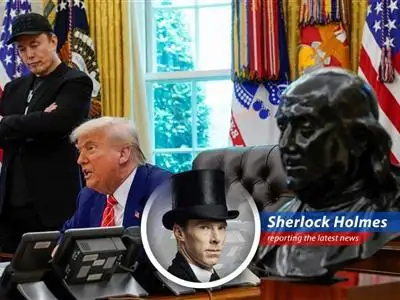
The American Gambit: High Tech Not High Tops
The game as they say is afoot! President Trump in a move that would make even the most seasoned strategist raise an eyebrow is setting his sights on bolstering U.S. domestic production of high tech products rather than the mundane matter of apparel or footwear. 'Elementary my dear Watson,' one might say but the implications are far from simple. It appears the American eagle wishes to soar in the digital skies leaving the more terrestrial matters to others. A curious choice indeed diverting from the clothing industry a move of significant interest.
The Dragon's Double Down: Manufacturing Might
Meanwhile across the globe China is 'doubling down,' as they say on its efforts to bolster advanced manufacturing. President Xi Jinping during a recent sojourn to Henan reaffirmed his commitment to a manufacturing led growth strategy. One might ponder 'Is this not the very path that has drawn criticism from the U.S. and its trade partners?' The answer dear reader is a resounding 'yes.' The pursuit of self reliance in advanced manufacturing as Xi proclaimed is the 'backbone' of China's economy. A bold statement but one that seems destined to collide with the American ambition. It's like watching two steam trains hurtling towards each other on the same track – a scene ripe for a most unfortunate incident.
The Imbalance Equation: Trade Deficits and State Subsidies
The heart of the matter as always lies in the delicate balance of trade. Trump seeks to rectify trade imbalances and has criticized Beijing for providing state subsidies to Chinese companies a move that distorts competition. 'Data! Data! Data!' I can't make bricks without clay!' And the data as presented by economists like Allan von Mehren suggests that China is unlikely to scale back its manufacturing led strategy. The anticipated U.S. tariff rates on Chinese goods are predicted to remain at around 40%. A figure that would make even the most seasoned merchant wince.
The 'Made in China 2025' Conspiracy: A Ten Year Target
Ah the infamous 'Made in China 2025' plan! A ten year initiative with the ambitious goal of transforming China into a leading high end manufacturer of everything from electric vehicles to semiconductors and robots. The Center for Strategic and International Studies estimates that China's spending on funding favored industries is significantly higher than that of the U.S. However despite this colossal financial backing China has reportedly missed several key targets and fostered unhealthy industrial competition. 'Mediocrity knows nothing higher than itself but talent instantly recognizes genius.' Perhaps China's ambition has outstripped its grasp?
Global Backlash and Deflationary Tides: A World of Worry
The ripple effects of China's industrial push are not confined to the U.S. Non U.S. markets are experiencing anxiety and inviting fresh trade barriers. Economists like Nick Marro suggest that EU China tensions are set to rise across a wide range of products. Furthermore there are concerns that China's grip on low end manufacturing could undercut developing nations. However there is a silver lining! Some argue that excess Chinese capacity could offer a deflationary respite for inflation weary economies. 'There is nothing more deceptive than an obvious fact.' Perhaps this is a calculated move by the Chinese? Or a desperate attempt to solve overproduction issues? Is this a gift or a curse? The game is still afoot!
The Consumption Conundrum: A Shift in Strategy?
Economists are urging Beijing to shift to a consumption led model and reduce reliance on manufacturing. However convincing Chinese consumers wary of income and job prospects to spend again is proving to be a challenging task. 'It has long been an axiom of mine that the little things are infinitely the most important.' The slowing retail sales growth in China suggests that this shift will be a slow and arduous process. Moreover Washington's likely stance on restricting Beijing's access to advanced technology adds another layer of complexity. As Nomura's Jing Wang aptly puts it 'Strategic decoupling remains inevitable on national security concerns.' The case my dear Watson is far from closed.













earnfromhome
I wonder how this will affect consumers in the long run?
redrock
I'm worried about the impact on developing countries.